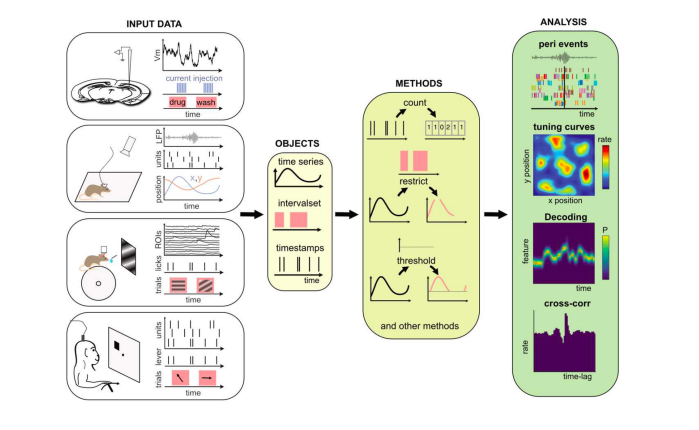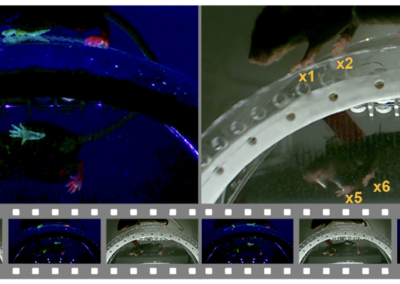Pynapple

Pynapple is an object oriented, lightweight and standalone toolbox for neural data analysis. Its core features five versatile timeseries objects from the Pandas library, allowing it the versatility to be used with most raw neuroscience data types and produce some common analysis forms. Many experiments have high dimensional, time resolved data. Pynapple’s object oriented core approach allows the user to reduce property tracking (e.g. sampling frequency, alignment of indices) and manipulate the data using object specific functions. All streams of data are by construction (data loaders) expressed in the same time base, limiting coding error and providing a simple environment. It also includes some foundational analysis and is dependent on any external packages. The user then has the option to write specific experimental analytical code. Pynapple’s flexibility to create loaders for future and custom lab-specific data further supports the development of yet unknown specialized analysis methods. A demonstration of this package was performed with a foundational analysis across various calcium imaging datasets during visual stimulation. In these experiments, core analyses built in for rapid screening can be done efficiently (only a few lines of code) in a Jupyter notebook. Further lab-specific development takes place outside of the core package and can be uploaded to a collaborative repository for specialized and continuously updated data analysis known as Pynacollada.
This research tool was created by your colleagues. Please acknowledge the Principal Investigator, cite the article in which the tool was described, and include an RRID in the Materials and Methods of your future publications. RRID: SCR_023312
Special thanks to Lan Hooton, an undergraduate neuroscience major, for providing this project summary! This summary is part of a collection from students in a Computational Methods for Neuroscience Course at American University.
Access Pynapple on GitHub
Check out the Pynapple GitHub repository.
SEE ALSO: For specialized developement, check out the Pynacollada GitHub






